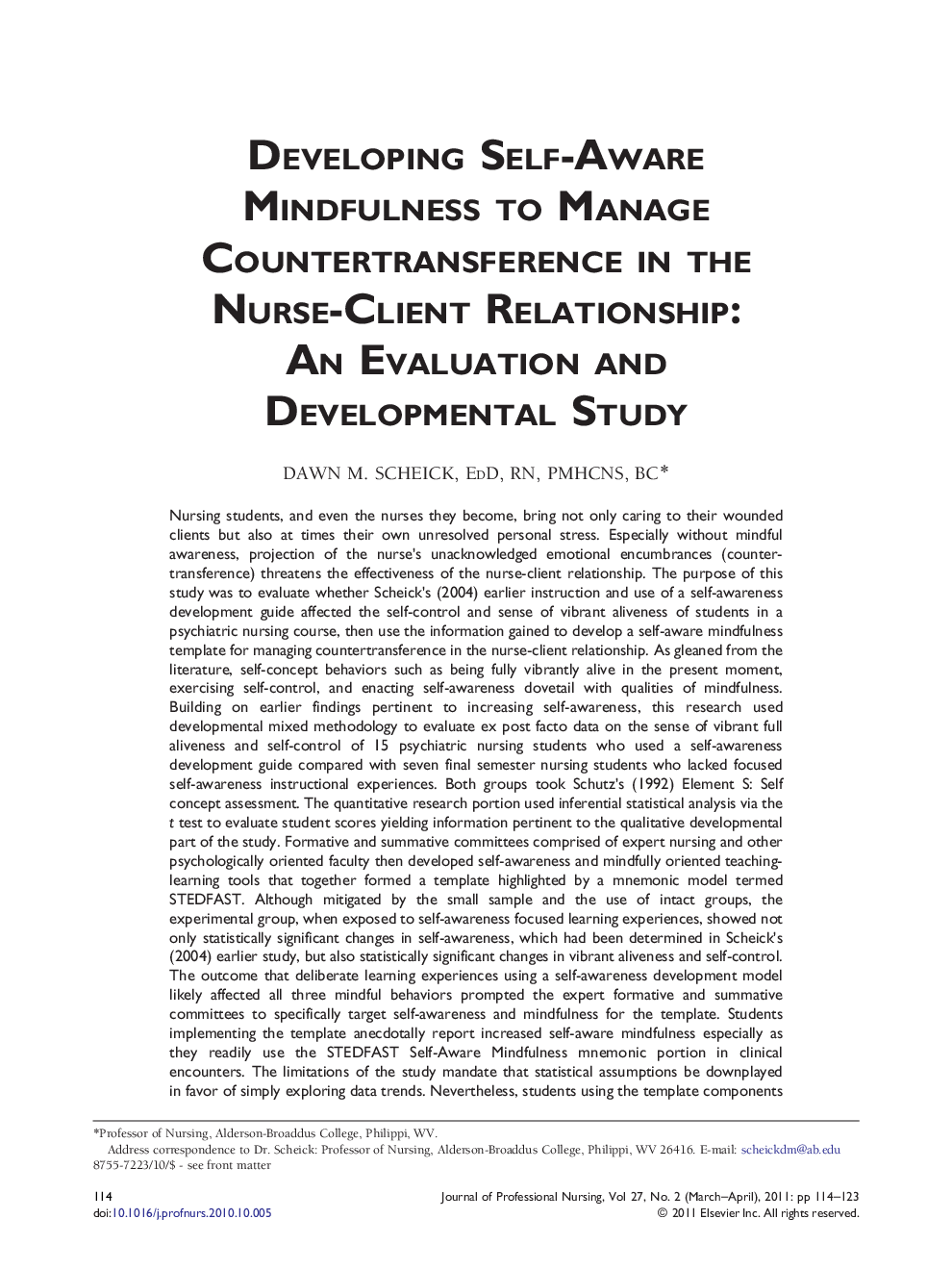| کد مقاله | کد نشریه | سال انتشار | مقاله انگلیسی | نسخه تمام متن |
|---|---|---|---|---|
| 2671280 | 1141352 | 2011 | 10 صفحه PDF | دانلود رایگان |

Nursing students, and even the nurses they become, bring not only caring to their wounded clients but also at times their own unresolved personal stress. Especially without mindful awareness, projection of the nurse's unacknowledged emotional encumbrances (countertransference) threatens the effectiveness of the nurse-client relationship. The purpose of this study was to evaluate whether Scheick's (2004) earlier instruction and use of a self-awareness development guide affected the self-control and sense of vibrant aliveness of students in a psychiatric nursing course, then use the information gained to develop a self-aware mindfulness template for managing countertransference in the nurse-client relationship. As gleaned from the literature, self-concept behaviors such as being fully vibrantly alive in the present moment, exercising self-control, and enacting self-awareness dovetail with qualities of mindfulness. Building on earlier findings pertinent to increasing self-awareness, this research used developmental mixed methodology to evaluate ex post facto data on the sense of vibrant full aliveness and self-control of 15 psychiatric nursing students who used a self-awareness development guide compared with seven final semester nursing students who lacked focused self-awareness instructional experiences. Both groups took Schutz's (1992) Element S: Self concept assessment. The quantitative research portion used inferential statistical analysis via the t test to evaluate student scores yielding information pertinent to the qualitative developmental part of the study. Formative and summative committees comprised of expert nursing and other psychologically oriented faculty then developed self-awareness and mindfully oriented teaching-learning tools that together formed a template highlighted by a mnemonic model termed STEDFAST. Although mitigated by the small sample and the use of intact groups, the experimental group, when exposed to self-awareness focused learning experiences, showed not only statistically significant changes in self-awareness, which had been determined in Scheick's (2004) earlier study, but also statistically significant changes in vibrant aliveness and self-control. The outcome that deliberate learning experiences using a self-awareness development model likely affected all three mindful behaviors prompted the expert formative and summative committees to specifically target self-awareness and mindfulness for the template. Students implementing the template anecdotally report increased self-aware mindfulness especially as they readily use the STEDFAST Self-Aware Mindfulness mnemonic portion in clinical encounters. The limitations of the study mandate that statistical assumptions be downplayed in favor of simply exploring data trends. Nevertheless, students using the template components describe growing in their ability to mindfully self-monitor toward better managing of not only countertransference in psychiatric nursing but also their own learning in other areas of nursing practice.
Journal: Journal of Professional Nursing - Volume 27, Issue 2, March–April 2011, Pages 114–123